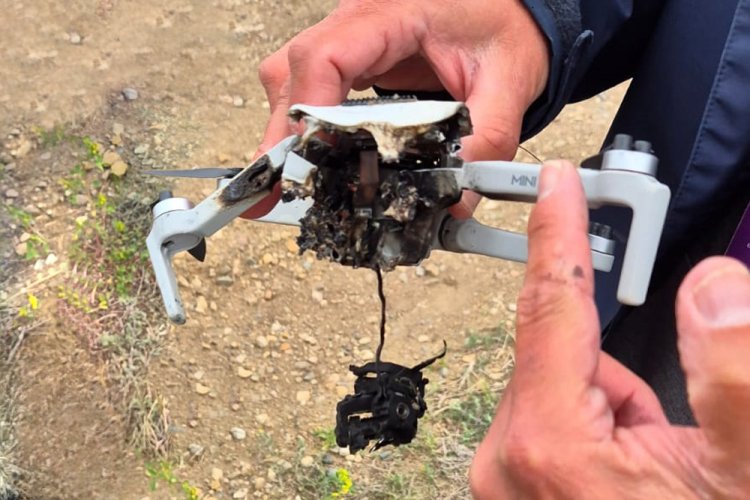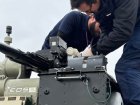News
EOS dazzles with its laser technology at the 2024 Canadian CUAS Sandbox event
Last month, Electro Optic Systems (EOS) joined innovators from across Canada and around the world for the Innovation for Defence Excellence and Security (IDEaS) program’s 2024 Counter Uncrewed Aerial Systems (CUAS) Sandbox event. At the event, counter-drone prototypes were put to the test in realistic scenarios; EOS demonstrated its Laser Dazzler technology.
Led by Ian Hilton-Cowie, EOS Projects Engineering Lead, and the EOS Defence Systems Titanis Team, the demonstration highlighted the potential of the Laser Dazzler as part of their counter-drone solutions. The Laser Dazzler, integrated into the company’s Slinger counter-drone system, successfully showcased its ability to degrade, deny, and destroy the electro-optical sensors on typical UAS, using a non-lethal, zero-collateral laser.
Andreas Schwer, Group CEO of Electro Optic Systems, said, “EOS has established itself as the pioneer in Laser Dazzling technology, being the first to successfully integrate it into remote weapon systems. Through the success of our Slinger system, we have proven our ability to deliver accurate counter-drone technologies. The Laser Dazzler builds on this experience, using our world-leading technology to extend options for non-lethal payloads.”
The Laser Dazzler enhances the remote weapon system (RWS) with optic-dazzling, disabling, and disengaging capabilities, offering a formidable solution to counter uncrewed threats. It can be integrated with an RWS as almost a drop-in replacement for the 7.62mm coaxial machine gun. This allows operators the flexibility to use either lethal kinetic or non-lethal scalable kinetic electronic warfare (SKEW) measures against aerial threat.
The dazzle effects from CUAS begin at the effective range of its camera. Laser light, being a single wavelength and coherent, travels far in a vacuum but disperses over distance in the atmosphere. The Laser Dazzler features bespoke beam-forming and optics engineered to achieve the necessary power density at operational ranges, tailored to specific tactical requirements.
For Group 1 UAVs, which rely heavily on the global positioning system (GPS) and global navigation satellite systems (GNSS) along with inertial navigation systems (INS) for navigation and payload delivery, maintaining sensor integrity is crucial. The Laser Dazzler's capability to mitigate sensor damage from light exposure ensures sustained operational accuracy.
Designed and developed in Australia specifically for export markets, the Laser Dazzler addresses current and emerging threats from uncrewed systems, drawing on lessons from recent conflicts, such as in Ukraine.
Schwer concluded, “EOS is committed to the continuous development of defence technology, equipping allied forces with systems that are not just lethal but also adaptable. Our ongoing innovations and partnerships keep pushing the boundaries of what is possible in defence technology.”
Organisers will publish lessons learned and announce the prize winners in the coming weeks.





